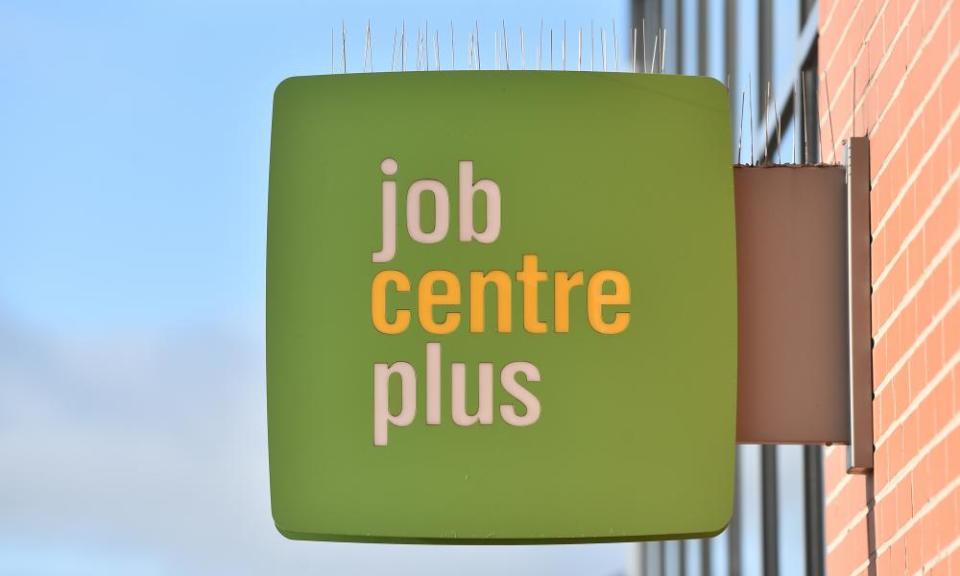Boost public spending to tackle Covid second wave, IMF tells UK

Britain should boost spending to tackle the second wave of the Covid-19 pandemic without worrying about its growing debt levels, the International Monetary Fund has said.
In its six-monthly health check of the UK economy, the Washington-based organisation warned on Thursday that the UK faced a difficult winter that was likely to depress economic growth and increase the number of jobs lost, especially among those with few skills.
In its latest forecast for the UK economy, the IMF said it expected a decline in GDP growth of 10.4% this year, compared with an estimate a month ago of -9.8%. An expected rebound in GDP growth next year was pared back from 5.9% to 5.7%.
Related: Why you shouldn't fall for the panic about Britain's public debt | Daniela Gabor
The IMF said the UK government had the capacity to increase spending on social protection and infrastructure investment to limit the impact on the economy of the winter surge in coronavirus cases. The report also urged the Bank of England to inject further funds into the economy to keep interest rates low and bolster business and household confidence.
With only a few weeks left to negotiate a Brexit deal with Brussels, the IMF’s managing director, Kristalina Georgieva, said the EU and UK should agree a settlement or risk lasting damage that would make an already difficult situation worse.
Born in Sofia, Bulgaria in 1953, Kristalina Georgieva is the first eastern European to head the International Monetary Fund (IMF). She studied economics, political economy and sociology in Sofia, and has additionally studied at LSE and MIT. She held a range of academic positions before going into the world of finance.
Prior to taking up her role at the IMF she had worked at the World Bank Group between 1993 and 2010. She left there to take up a role as European commissioner for humanitarian aid and crisis management. She returned to the World Bank Group in the role of chief executive in 2017.
On her appointment to the IMF role in October 2019, she said: "The IMF is a unique institution with a great history and a world-class staff. I come as a firm believer in its mandate to help ensure the stability of the global economic and financial system through international cooperation. It is a huge responsibility to be at the helm of the IMF at a time when global economic growth continues to disappoint, trade tensions persist and debt is at historically high levels."
“We strongly encourage the UK and EU authorities to make every effort to reach an agreement. Progress on a range of issues has been made over the past year and there is room for a compromise beneficial to both sides.
“A solution would remove important downside risks from the outlook. Regardless of the outcome, it will be important to prepare the economy, firms, and people,” she said.
Georgieva also praised “the enormous efforts the authorities have made to contain the impact of the pandemic in the UK”.
“The unprecedented package of fiscal, monetary, and financial sector support measures has helped to sustain incomes, keep unemployment down, and curb corporate insolvencies.
“It is one of the best examples of coordinated action that we have seen globally. We welcome the continuing efforts the government has made to refine its support measures, including adaptations to the Jobs Support Scheme announced last week.”
However, the increased debt levels among many UK companies and the likelihood that some will go bust over the coming months should be tackled to prevent a steep rise in unemployment, Georgieva said.
“We support an additional fiscal push, centred on public investment and enhancing the safety net. This represents an opportunity to ‘build forward’ and address the UK’s climate targets, reduce regional inequality, and help those who do end up losing their livelihoods,” she said.
In the wake of the 2008 financial crash, the IMF had warned the UK against spending increases and endorsed the then chancellor George Osborne’s austerity programme. However, under Georgieva’s leadership, the organisation has revised its thinking and throughout the pandemic has urged the UK and other rich nations to boost spending to minimise the economic damage caused by the virus.

 Yahoo Finance
Yahoo Finance 